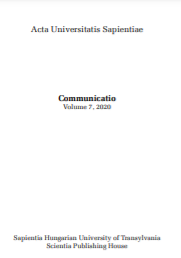
Why a Book on the Digital Divide in 2020?
Review of: Jan van Dijk, „The Digital Divide“, 2020, Cambridge, UK: Polity, 208 pages ISBN 978-1-509-53445-6. Review by: Rozália Klára Bakó
More...We kindly inform you that, as long as the subject affiliation of our 300.000+ articles is in progress, you might get unsufficient or no results on your third level or second level search. In this case, please broaden your search criteria.

Review of: Jan van Dijk, „The Digital Divide“, 2020, Cambridge, UK: Polity, 208 pages ISBN 978-1-509-53445-6. Review by: Rozália Klára Bakó
More...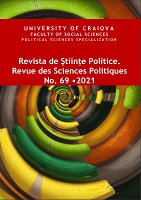
Learning from global strategic management rules and procedures at EU level proves to be a cornerstone of policy management analysis. Purpose and scope of study: The analysis is focused on dealing with the strategic planning and public management of the Multiannual Financial Framework (MFF) for 2014-2020 at EU level. Research objectives: The analysis is triggered on the following directions: (1) presenting the legal preparation, procedures and negotiation of the EU MFF for 2014-2020, (2) analysing the media coverage of EU preparations for the multiannual strategic planning, (3) examining the media coverage of policy scopes and priorities regarding finances, (4) parsing media discussions on policy and programs design and management, (5) the review of media discourse on the performace of EU policy management. Research methodology: The research methodology is designed under the guidance of a content analysis based on mainstream media coverage of articles throughout 2013. The study employs the identification of relevant articles in the online editions of European media, the analysis of distribution and frequency of articles around meaningful themes, framing analysis and indication of bias in connected articles.
More...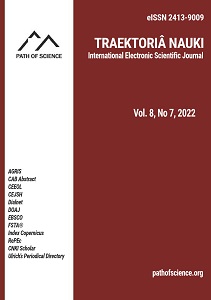
This study aimed to identify and explain the planning for implementing administrator leadership training at the Regional BPSDM of West Nusa Tenggara Province. This study uses a qualitative research type utilising a case study approach. Sources of data in this study use primary data sources and secondary data. They collect data in this study using observation techniques, interviews, and documentation. Data analysis is based on data collection, data display, and checking the validity of the data using the test of credibility, transferability, dependability, and confirmability. The results showed that the planning process for administrator leadership training includes: an analysis of training needs, participation, training personnel, facilities and funding.
More...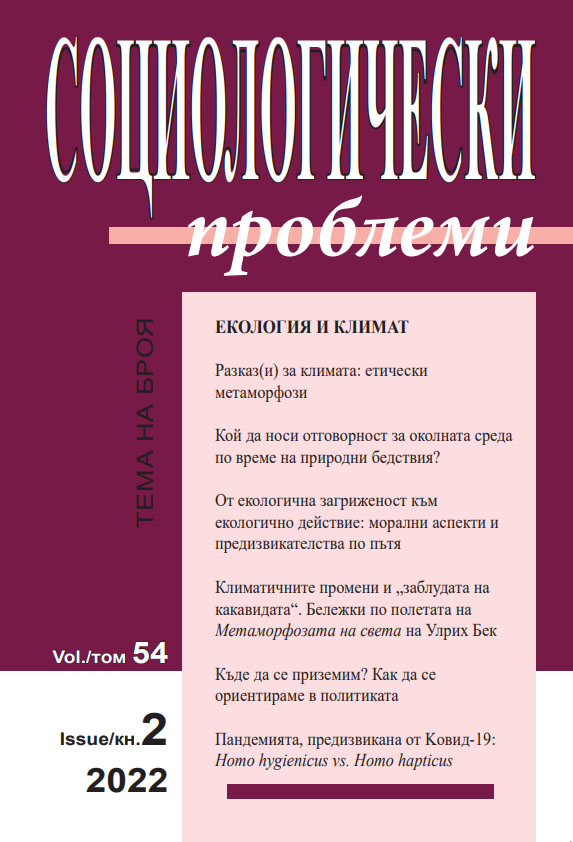
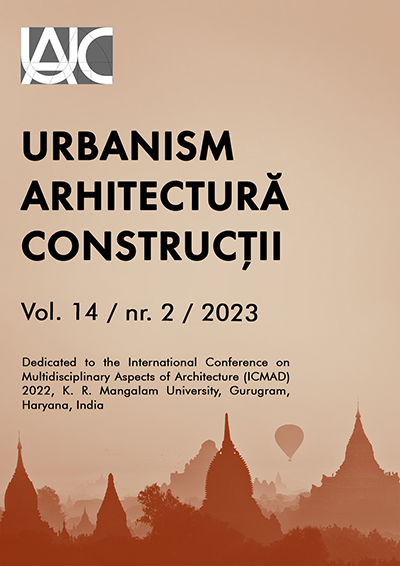
Solid waste management has become a serious concern for city managers and environmentalists in developing countries due to fast urbanization, unplanned development, and changing lifestyles leading to the generation of a huge amount of waste. Sustainable waste management strategies are required to handle large quantities the waste. It requires comprehensive knowledge about the different waste management strategies adopted in India as well as in other countries and to find out the scope for effective management of waste to make cities clean and livable. The paper attempts to understand the important role played by different sectors engaged in waste management who execute in response to specific contexts for efficient management. Existing waste management practices in India and other countries are reviewed and operational difficulties are identified. A pilot survey of the planned neighborhood area in the city of Cuttack is conducted to understand the ongoing practices of Solid Waste Management and also inhabitants’ acceptance of waste management initiatives.
More...
Climate change implications are a major concern for urban areas. They are vulnerable to major disasters and pandemics for the sheer number of people depending on the limited infrastructure in a confined area. Responding to this conundrum will require directing significant investments and resources towards the right solutions in the coming years. It is also imperative for us to consider whether our current infrastructure investment strategy is adequate. Governments and urban planners have so far favoured grey or traditionally engineered infrastructure for wastewater treatment. These legacy systems need to change to cater to current needs. Nature-based solutions (NbS) and blue-green infrastructure (BGI) are an alternative to restoring and managing a diverse integrated ecosystem, with the least amount of construction or interference with nature. They are a multidisciplinary, integrated approach towards a regenerative urban system that enables a healthy environment and has significant ecosystem benefits. The incorporation of circular economy criteria for evaluating NbS solutions in the urban domain is vital to ensure its sustainability. The paper will assess the NbS applications and blue green infrastructure concerning wastewater in urban areas and their effectiveness and scope towards promoting a circular economy.
More...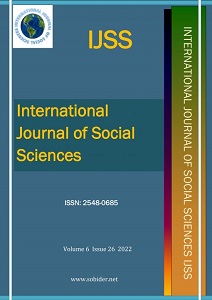
This study includes the functioning of the solid waste management system in our country and recommendations on what needs to be done for this. In the current period, city administrators tend to carry out the application of modern and traditional orientations together in solving problems. In this sense, city administrators stand out in terms of having much more humane, participatory, democratic options. This brings together a situation that strengthens the hand of city administrators. The issues of collecting, transporting and disposing of hazardous and toxic waste, that is, waste that is both liquid and solid, that are of close concern to local authorities about waste problems and that have come to the agenda in recent times are the issues of collection, transportation and disposal. Some of the hazardous and toxic waste is from flammable substances such as solvents used for chemical purposes in the chemical industry. These create fire hazards where they are located. Some of them have explosive properties. Naturally, when they come into contact with different chemicals, they create gases full of danger and poison. In some of them, that is, in those that differ in different ways, they carry agents that cause diseases in living beings, that is, bacteria, viruses, parasites, cysts, etc.
More...
Always critical activities within the European Union, the United Kingdom and the European Union as a country that takes the place of suspicion and distrust between the two parties the relationship between the countries that carried a strong association has not been established. The Brexit process, which consists of the merger of the words Britain and Exit and resulted in the departure of the United Kingdom from the union, has been shaped in this context. Finally, in the referendum held on June 23, 2016 with the participation of 72.2 percent of the population, 51.9 percent of citizens voted for the separation of the kingdom from the union. On 29 March 2017, the United Kingdom officially informed the Council of Europe that it intended to leave the union. After the European Parliament approved the decision, the kingdom officially left the union on January 31, 2020.
More...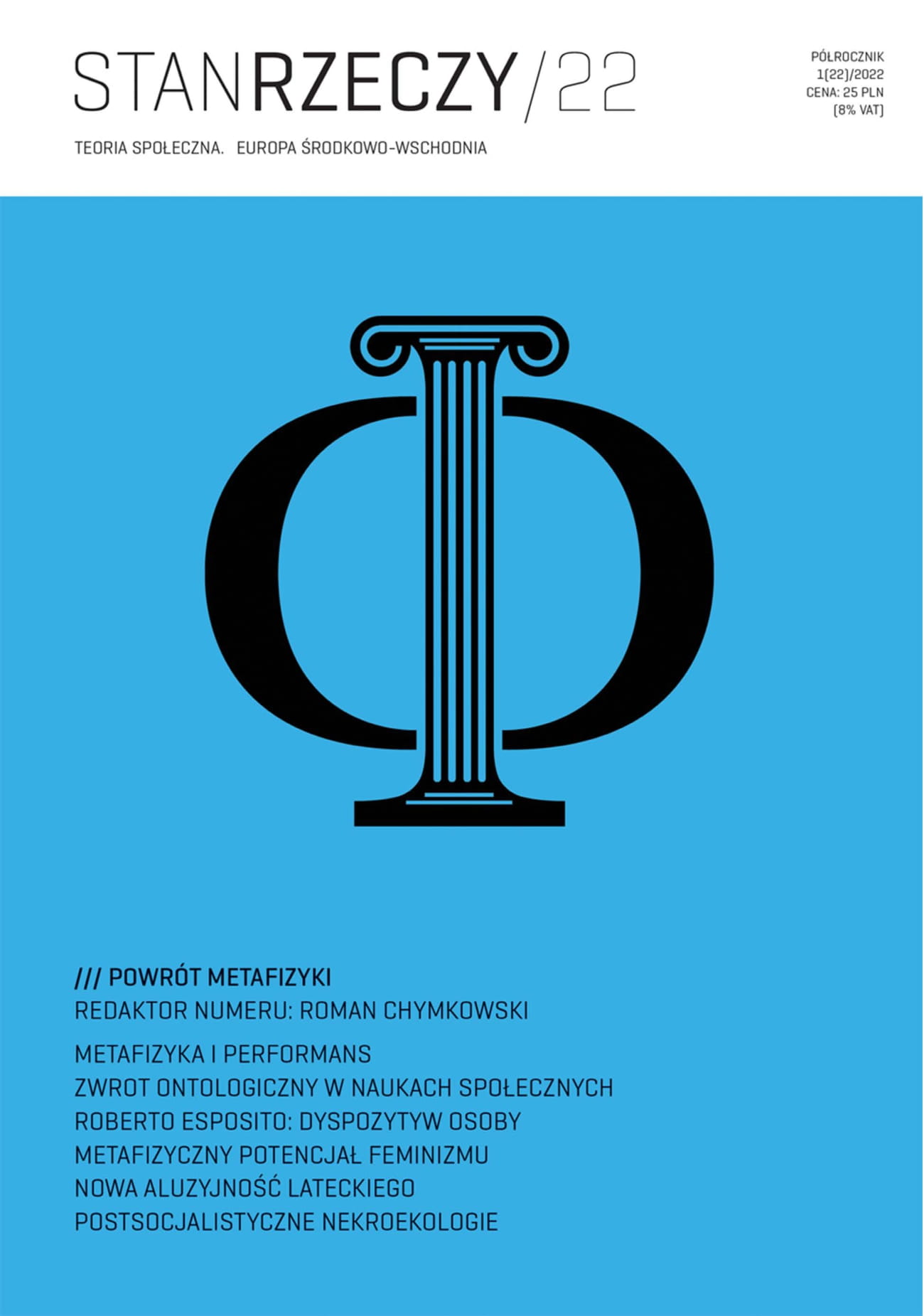
This article analyses books and speeches by Al Gore, former Vice President of the United States and winner of the Nobel Peace Prize. Gore consistently warns of an impending ecological disaster whose cause is a robber economy which does not take into account the ecological consequences. In particular, global warming caused by the burning of fossil fuels, which are the basic energy source of the modern economy, is a threat to life on Earth. In Gore’s opinion, the ecological crisis accompanies a spiritual one, and both of these crises stem from the philosophy of the Enlightenment, which is responsible for alienating civilisation from its natural environment (Löwith, Taubes). Gore’s warnings of ecological apocalypse form a manifesto of the economic, political, and moral revolution that is needed. The fight against the effects of global warming presupposes fundamental changes in the way of life of every human being, as well as a moral renewal based on reinterpreted religious traditions, especially Christian ones. From this point of view, Gore’s project can be described in terms of the politics of faith (Oakeshott).
More...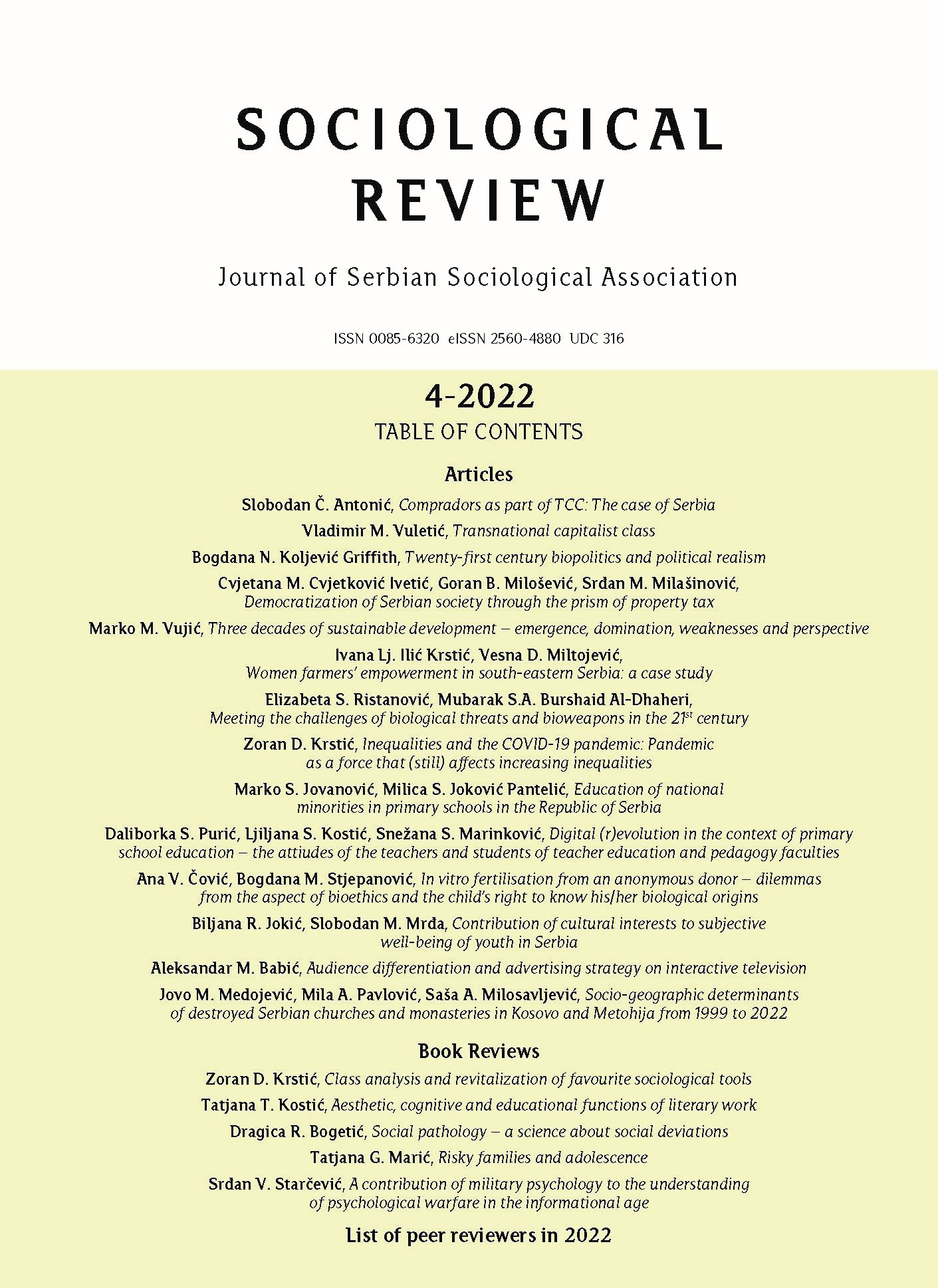
The paper is aimed to perceive critically the three-decade concept of sustainable development at several levels, and, accordingly, it is divided into three parts. The first one is dedicated to the specific features of the emergence of this concept in the initial period 1983-1992 and the first developmental period 1992-2000. A special emphasis is laid on the theoretical distinction and domination of the concept of sustainable development in relation to the then existing forms, such as ecological modernization. The second part of the paper continues the identification of the developmental stages within the scope of the Millennium Goals 2000–2015, with a central critical focus on the achieved results. The third part of the paper covers the current stage of the Sustainable Development Goals (SDGs) envisaged for the period 2015–2030, and particularly points to the quantitative faults and inconsistencies in the methodology of evaluation, as well as measurement of the fulfilment of the goals themselves. The analytical apparatus points ty qualitative and quantitative methods to the chronically faulty set of instruments of sustainable development due to which the ecological component as the first among the equal is derogated to the level of the least importance, which is contrary to the founding principles of this concept.
More...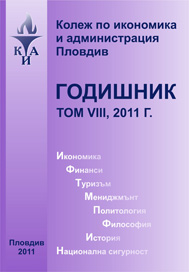
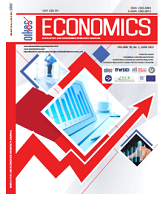
The profound impact of the COVID-19 pandemic and the Ukraine crisis 2022 on tourism has rendered forecasts of tourism demand obsolete. Accordingly, scholars have begun to look for the best methods to predict the recovery of tourism. In this study, econometric and judgmental methods were combined in order to to forecast the possible ways to tourism recovery in Slovenia. The goals of this paper are to show and assess the current offerings and potential for the development of tourism in Slovenia, and to point out the advantages and challenges in the development of tourism in this type of destination. Statistical methods were used for benchmark analysis, while Box and Jenkins approach and ARIMA modeling were used for forecasting Slovenian tourism until 2030. The datasets are analyzed using Tableau 2022.1. Our findings show that Slovenian tourism will be slower on the uptake and is not likely to fully recover until 2026, due to COVID-19 related uncertainty. A steep jump in daily COVID-19 infections in China and the Ukraine crisis which is affecting political and economic stability in the world is also slowing down the speed of recovery. In 2019, Chinese, Russian and Ukrainian tourists generated 5% of all tourist arrivals and overnight stays. In particular Russian tourists were well-known for their high consumer expenditure and thus desirable to the destination places. To mitigate the drop in tourist arrivals, Slovenia should do two things, namely concentrate on traditional markets, i.e. Austria, Italy, and Germany, which altogether represent 1/3 of all tourist arrivals and overnight stays, and secondly, it should target new markets, bringing new, innovative products, services, and experiences.
More...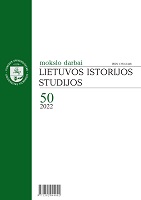
Housing modernization played a key role in interwar European urban planning, as it was used to build a new type of healthy and comfortable residential area. This question is also relevant in the case of the city of Vilnius, since from 1919 to 1939 the area of the city did not increase – its limits covered an area of 10 400 hectares, which was approved in 1919. This means that the modernization of housing and related urban planning in Vilnius had to take place in a different way than it had in the rapidly growing cities of East Central Europe, where the growth of a city’s area was stimulated by newly built residential suburbs. In this paper, residential architecture of Vilnius in 1919–1943 is studied based on the theory of housing-based urban planning formulated by Yael Alweill and Noa Zemer. Through an examination of how the Greater Vilnius Master Plan (1936–1939) was prepared, the research follows how the construction of modern housing affected urban planning and functional zoning.
More...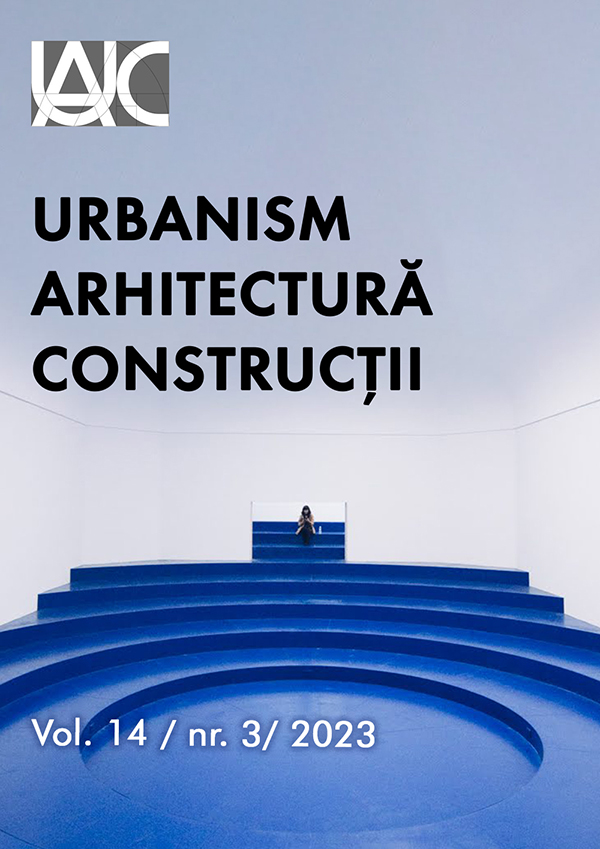
The rate of global urbanization is constantly increasing. As a result of the massive population growth, there is an increasing demand for further urban development, especially in developing regions such as Aswan city. This paper aims to examine the usage official land-use data in predicting future urban growth until 2046, moreover, to define urban driving forces in case study area. This was done using Similarity weighted model, a machine learning based model to simulate future urban growth. The results show that official land-use data produce a slightly better results’ accuracy than remote sensing sources within small to medium scales. The results although reveal that for study region, urban area is expected to expand to cover an area of almost 4460 Feddan by year 2046. The outcome of this research assesses decision makers to accurately predict future urban sprawl areas using available official land-use data.
More...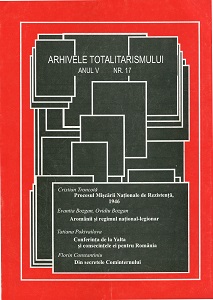
This is a chronological study of the way the ideas of “urban restructuring” were “implemented” and of the indoctrination conducted for two decades (1950-1970) on several generations of architects, using the principles of “socialist urban planning.” The city as a “weapon of the bourgeoisie” and the “reconstruction of cities as an expression of the class struggle” are the main landmarks of the socialist urban planning ideology.
More...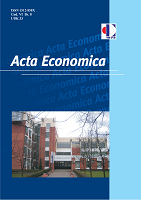
This work has for its aim to give answers to the complex of questions related to modern trends od development of world socio-economic systems and the ways of fitting Yugoslavia into those systems. By using qualitative judgements of development, we come to the conclusion that social trends are regulators of economic relations so that is why in the system of planning, we start with constant change of social needs. By sistematizing economic and un-economic factors of development we come to the conclusion that uneconomic factors dominate with more than 30% over economic factors. In such conditions, strategic planning of national economy has a dominance over operative and regional plans of development. In Yugoslav conditions, planning has to keep balance between the so called viable development and risky markets so that it could, on the basis of conception of its own strenght, include our economy in the existing new conception of international economic order. That means that plan with the force of action provides Yugoslavia with one of links of division of international profitable cake.
More...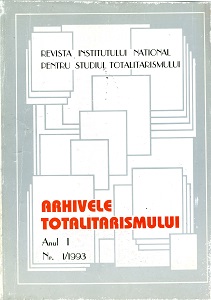
The author is director of the Urban and Regional Sociology Centre and professor of sociology at the University of Bucharest The text is a fragment of the research program The Impact of the Urban Development Politics on Life Quality edited by the Urban and Regional Sociology Centre, Bucharest. The man-made environment in Romania is discussed on three levels: experts in town planning, designers and population. Documentary analysis and sociological questionnaire were used as investigation methods. The Romanian case is considered as meaningful for a virtual totalitarian regime sociology.
More...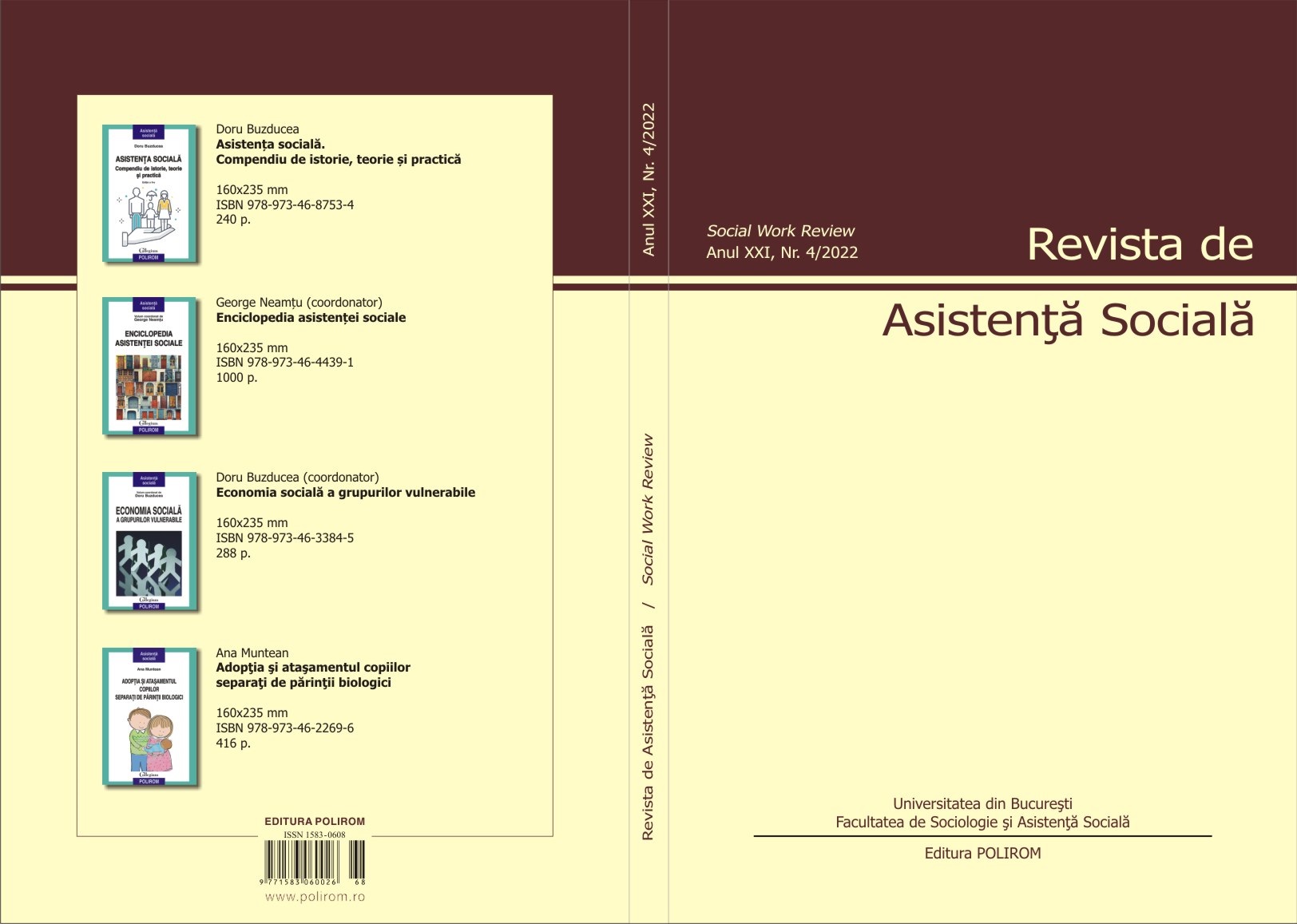
Alcohol consumption among teenagers and young people has increased, a phenomenon evident in the specific statistics at the national and international level. In this direction, the authorities have concerns regarding monitoring and combating the harmful consumption of alcohol, by proposing social control and prevention policies. In recent years, different strategies have been implemented in Romania at the level of social policies in the field of health and education regarding the reduction of abusive alcohol consumption. Purpose: The purpose of the sociological research was to analyze social policies in the field and the opinion of specialists who work in social support services for people addicted to alcohol and their families. Methodology: The sociological research focused on a qualitative analysis of social policy strategies in the field and a quantitative analysis based on the sociological questionnaire survey. The population included in the research targeted professionals (n. 101) working in support services in the field of social work and health. Results and conclusions: The results of the sociological research showed that there is no unitary social policy, and the social support services in the social and medical fields are not sufficiently developed by public institutions and do not cover the needs of these categories. Most therapeutic and recovery services have been developed mainly by private psycho-medical institutions and non-governmental organizations.
More...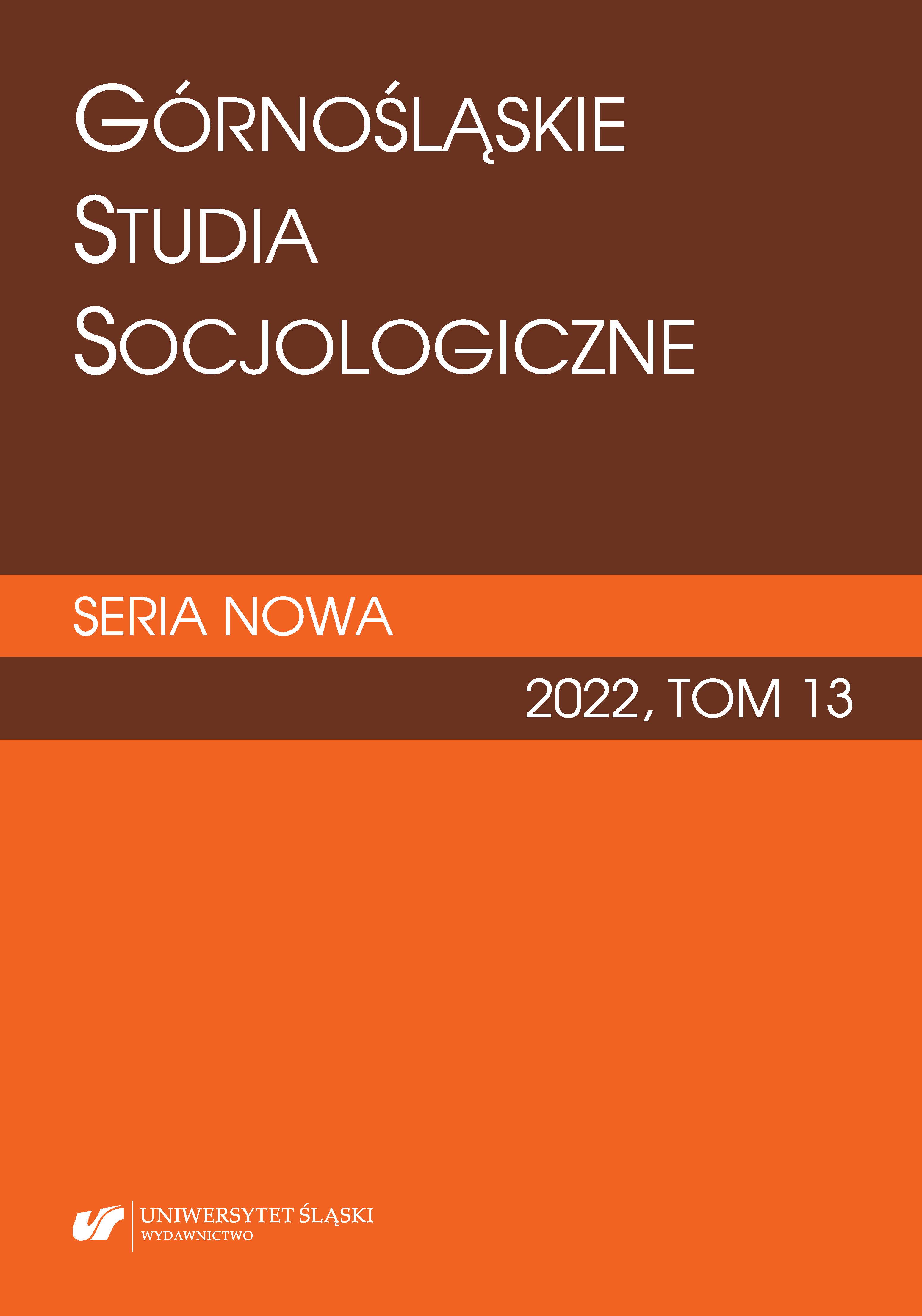
In this article, Klaudia Słowik presents her recommendations for supporting the process of empowerment. The primary goal of the empowerment process is to prepare school graduates for independent life. According to the legislature on this subject, graduates should become active subjects in this process. Słowik’s article is a voice in the ongoing discussion on the trajectory of the process of gaining independence. In particular, she focuses on the fundamental issues faced by graduates and proposes a holistic understanding of the system of support in order to improve the efficiency and effectiveness of the process of their gaining independence.
More...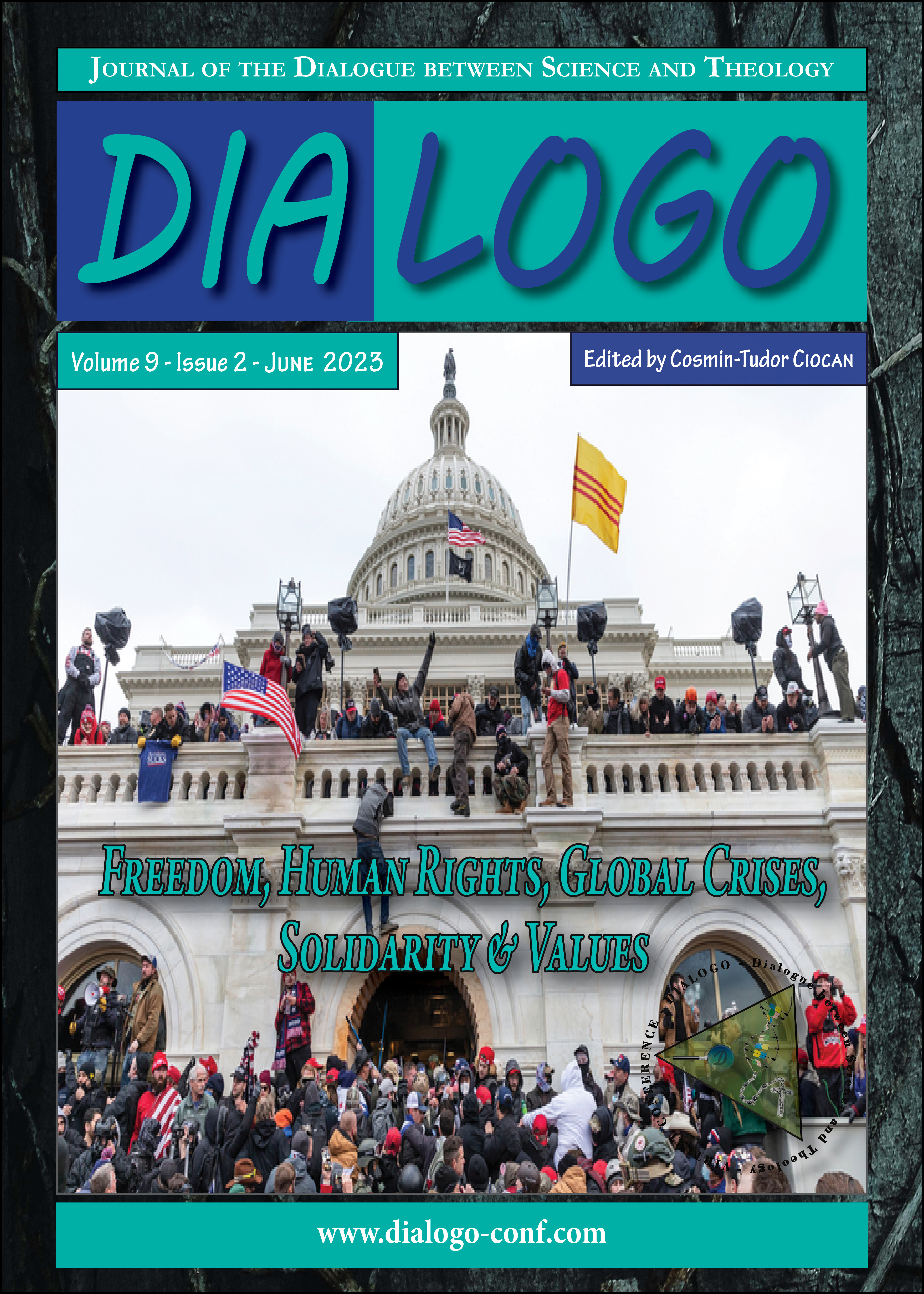
In this paper, two questions are been put forward: whether doping falls within the athlete's freedom to do what they can to enhance their performance and whether or not is necessary an establishment of limits on the scientific research concerning these substances. Following this line of thought, two aspects of freedom are raised: the freedom of the athlete, and the freedom of the scientist. These two aspects are discussed within a moral framework, in particular that of moral relativism. For the first question, based on the theory, the athlete may consider that there is no absolute truth about doping, such as e.g. that it is wrong and not beneficial for sports, athletes, etc. The morally rightness of doping depends on the moral character of each athlete and/or the association, the country she/he represents. For the second question, one might consider that research in the field in question is not morally wrong. By investigating the properties of various substances we could be led to cures for several diseases and even to the augmentation of human capabilities. Both aspects are also discussed through selected interview answers of professional athletes.
More...